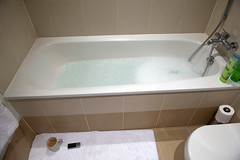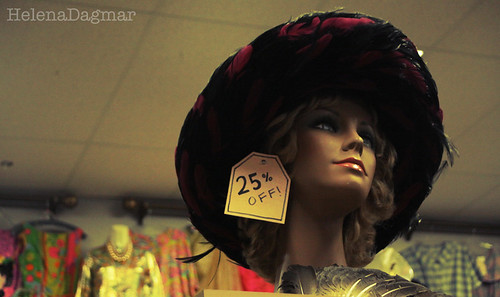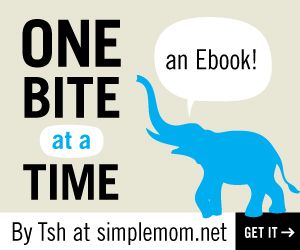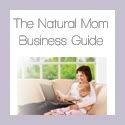My guest on this show is Melinda Friedman of The Dental Essentials.

The Dental Essentials is the first and only nutritional supplement specifically formulated to promote cavity resistance.
The ingredients in The Dental Essentials have been clinical proven to reduce the incidence of cavities by up to 95%. When taken daily, The Dental Essentials can also “re-mineralize” or heal tooth decay that may have already started.
Topics discussed on the show:
- Why parents who feed their kids a healthy diet find that they still have tooth decay
- The role of supplements in preventing cavities
- How the research and work of Dr. May Mellanby and Dr. Weston A. Price align with the science behind Dental Essentials
You can listen to this show by clicking on the mp3 link below. A transcription of this show is below if you prefer to read rather than listen.
Speaker 1: You’re here with Carrie at Natural Moms talk radio and my guest on the show today is Melinda Freedman of Dental Essentials. Welcome Melinda.
Speaker 2: Welcome, thank you. Thank you. It’s nice to be here.
Speaker 1: Yeah, I’m excited to talk about this subject because since becoming a parent, it’s something I’ve done a lot of research about and kind of had a lot of emotional distress about it, so I’m thrilled to find your company and your website and your products. I’m really looking forward to our discussion, but first of all tell us a little more about Dental Essentials.
Speaker 2: Sure, the Dental Essentials is a small company. It’s only been around for just under two years. We create a very small line of nutritional supplements, specifically designed to help reduce the instance of cavities and it is basically following in the nutritional approach. So we have looked at sort of the history of research that has been done sort of attempting to limit the number of cavities that children get or completely eradicate them through a nutritional approach and we’ve taken the key ingredients, identified the key ingredients, the minerals, the vitamins that were used and distilled them down into a product that’s very simple for people to use. We have a liquid formulation for younger kids and a tablets formulation for kids who are able to take pills.
Speaker 1: Right, well I mentioned that a lot of parents like myself, have had kind of an emotional distress when it comes to dental decay and I think that’s because we are trying so hard to feed our kids “healthy diets.” There is so many different ideas about what that means and it’s really a topic I have researched for years and years since I was a teenager, really.
And when I became a parent I assumed my children would have the same experience I had, which is that I never had a cavity. I’m 36. I’ve never had a cavity. My friends kind of made fun of me growing up, they said you ate “bird seed” at your house. My parents were really health nuts, you know and I just knew that was going to be the way it was going to be with my kids. And so when they developed cavities, it made me feel like a failure.
Speaker 2: Yeah.
Speaker 1: So a lot of parents find that, even if they are trying to feed their kids a whole food diet, their children still develop decay. What is contributing to that even in an otherwise healthy diet?
Speaker 2: Good question and I just want to say that the people that I have encountered and also my personal experience mirror yours dramatically. I mean, I also expected my children to have the, you know, just the stellar examples of cavity free living and I was shocked, but the thing that shocked me even more then my child getting a cavity, when I thought OK, my diet growing up even though I would have thought it would have been New York City in the 70′s and had flouridated water. Yeah, my background wasn’t great. Lots of cavities year after year and I thought, OK, I don’t want my kids to have that sort of experience so I made sure that I was completely different and organic and just you know, 100 mile diet and stuff and just really, really paid attention to it. So when my daughter developed cavities I was surprised, but what was even more surprising was when I asked the dentist well how can I make sure that this doesn’t happen again, she basically just said floss, brush and like we never do that and…
Speaker 1: Isn’t that frustrating?
Speaker 2: “…other than that, there is not much…” and I’m like what is that?
Speaker 1: Yeah and then you feel like this horrible person, like you don’t have good dental hygiene.
Speaker 2: Exactly, exactly I’m thinking if it’s as simple as just brushing and flossing we would all have perfect teeth because we had gotten that message loud and clear.
Speaker 1: Yes.
Speaker 2: So, but in terms of your question about diet and I think there is really two things that get called into play and this is for people who have fantastic diets and they can eat you know, super healthy and organic eating families, but one of the things that people may not realize is that especially with the big push toward whole grains and things like that, that the grain products that people eat largely have something in it called Phytic Acid, which is naturally occurring and it binds to calcium.
So if you’re making sure that your child is getting enough calcium, but you’re also getting your child delicious whole grain bread chances are good that they are now going to be deficient in calcium because it’s leaching it directly out of the body. So as much calcium that you’re putting in, it’s just coming right out with the phytic acid. So that is something to keep in mind, I mean this is if you have cavities, if you’re family doesn’t have cavities then it’s not really an issue, but you know if you’re struggling with cavities one thing to look at is whether they are losing a lot of their calcium through phytic acid intake.
Speaker 1: OK, so if your child is a carb addict or if you are, be watching for that. If they eat a lot of crackers and grain based foods.
Speaker 2: Exactly, exactly. While carbs are great for energy, but not a whole lot else. So if that’s something you can get on top of then great. Another thing that’s doable is soak the grains or to ferment them. There is a lot of information on a lot of different websites as well as in different books including one that you might have talked about on your website Nouriousing Traditions by Sally Fallon.
Speaker 1: Yeah.
Speaker 2: Great, great resource about soaking and fermenting grains and that is through soaking the grain to minimize the fitic acid in the food itself, but it’s still you know, delicious and good for you and all that stuff. I think the flood people used to soak their oatmeal every night or still do sometimes, but that sort of tradition of soaking your oatmeal every night would help to mitigate the phytic acid.
When I was introducing our products, what I failed to mention was that we’re looking at tooth decay as a result of nutritional deficiencies and this is very clear in research that it’s calcium and vitamin D and vitamin K2 and a couple of other minerals that combine together to create the most highly mineralized teeth and so if you’re lacking in any of those, chances are good you’re at a higher risk of developing cavities.
And so when we’re talking about nutrition, the nutritional talk, the things that I’m mentioning here are having to do with making sure that you don’t have deficiencies and those particular ingredients. And so the calcium you would likely be calcium deficient if you had too much phytic acid in your diet. And the other thing I was going to mention because it’s really true is there is a big push for low fat diets, pushing this great idea that low fat is the way to go and you know there maybe some merit there, I’m not going to debate that, but certainly the key vitamins for healthy teeth, vitamin D and vitamin K2 are fat soluable vitamins. So you need to have sufficient fat in the body in order to make them do their job. So you combine high carb intake with low fat diet and it sounds kind of like hearing what you should do, but ultimately it can be taking a toll especially on all these poor kids who are developing so many cavities.
Speaker 1: Yeah, something that drives me crazy about the whole low fat craze is that from my own personal research, I believe that low fat doesn’t have a place in a child’s diet when they are developing growing brains, spinal cords that kind of thing. It drives me nuts that my step daughter is in public school and all they have available in the lunch room is skim milk. That just drives me crazy.
Speaker 2: Yup. I agree, I agree. Actually my kids friends come over and they see that we’ve got full fat milk and they are like whoo hoo!
Speaker 1: Yeah, it’s an “evil” thing now, fat. Well, you mentioned deficiencies. Now some of these don’t really show up in terms of some big health issue. You know sometimes it’s hard to know if we have a deficiency. It’s showing up in the cavity, but we don’t make that connection, so what role does supplementation play in helping to prevent tooth decay?
Speaker 2: Well, as usual because it’s so easy not to get enough of these key vitamins and minerals. I mean just vitamin D, I mean there is a lot of information fortunately at the moment about vitamin D in the last couple of years, but you think about, you send your kids out to play, even if you live in a sunny place like Atlanta, but for the most part we are going to slather them in sunscreen for a lot of reasons. And we cover them up, so the chances of kids getting the kind of vitamin D intake they would’ve had 100 years ago is pretty unusual, very unusual. And I think you would probably be picked on by friends and neighbors for letting your child out for too long in the sun without being protected.
And then even also just kind of thinking about a kind of more obscure vitamin, like vitamin K2, which is key and really difficult to get enough of in our North American diet, but traditionally for meat eaters, you know if you were eating cow 100 years ago they would be grass fed and now they are grain fed. So K2 is developed through eating grass, the spring grass that grows yearly and then we consume the cow and you know it’s all a part of that cycle. But if your cows are now longer providing the kinds of nutrients they would have had 100 years ago, it’s very easy, in fact I think it is pretty epidemic that there is a deficiency of calcium and certainly a deficiency in vitamin D and not is much as known about K2, but certainly through the work of Price and other people it’s comes to the forefront. It’s been identified of how important it really is and where it comes from.
Speaker 1: Now K2, is that the nutrient that Dr. Price referred to as activator X?
Speaker 2: That is correct.
Speaker 1: OK. He didn’t know really what it was, but he gave some of his patients grass fed butter.
Speaker 2: Right and then he just distilled it down to that high vitamin butter oil when he was using it. Yeah, that is in fact what it is.
Speaker 1: Well, when you’re talking about getting enough calcium, it made me think of another thing that has been kind of vilified other then fat is just milk. You know a lot of people have kind of vilified milk because so many people have issues adjusting it perhaps and also the fat issue, but think of the way it was with our grandparents. The only thing that my dad ever drank growing up was either water of milk. That was it. There was no juice. There was certainly no soda. Water or milk and it was pretty much the milk was at the table with the meal, so I wonder if that has something to do with the calcium issue.
Speaker 2: So funny you should say that, my neighbor had two kids and we were talking about tooth decay and stuff like that and neither of her children ever had cavities and I said “oh that’s fantastic” and I had dinner at her house and I had noticed that there was a big bottle of milk on her table during the meal and her kids just helped themselves through the whole meal. I thought wow, that’s really unusual, but really enlightening as well. I though no wonder your kids are out completely cavity free and tall too! I don’t know if that’s a consequence, but I kind of noticed that as well. But yeah, I mean I agree. 100 years ago, I even remember vaguely my grandparents just kind of looking down their nose at all the orange juice my sister used to drink and certainly and pop or soda that would have been around.
Speaker 1: Yeah, I remember being a little girl (and I’m telling my age here), but having the little glass bottles, you know on the door step early in the morning. Ice cold and I believe it was raw at that point in time. At least it was not homogenized because the cream would rise to the top.
Speaker 2: Right, right.
Speaker 1: Yeah, so we mentioned Westin A. Price and your website has information about Dr. Mellonbee and Dr. Pottenger. So how does their work align with the research behind your products at Dental Essentials?
Speaker 2: Sure, well I’m going to talk mainly about Dr. Mellanby’s work just because I find her fascinating. When we started investigating sort of the link between nutrition and cavities or nutritional deficiencies I should say and cavities. We quickly came upon Dr. Price because he is fairly well known, but then we came up with Dr. Mellanby, who is this sort of unsung hero in this field. And she originally started doing her work with her husband who is Dr. Edward Mellanby and he way key in determining that a vitamin D deficiency is what causes rickets in children, which is that sad bone disease where you legs are bow legged and things like that which is prevalent in Europe in the early 1900′s, 1910, 1920′s.
But anyway, she was helping him with his research and noticed that when he was treating children for rickets with vitamin D therapy, their tooth decay miraculously seemed to go away as well. And she thought that’s very strange so she took it upon herself to create her own trials and sort of make it her life’s work to see the link between vitamin deficiencies and tooth decay. And so she treated children with vitamin D and calcium and was able to have miraculous results and was able to do things we could never recreate now like taking groups of children, like in an orphanage situation that we wouldn’t have any more and be in complete control of their diet. So she would have a control group that would eat a good meal, good food by our standards and then she would have another group that she would give exactly the same food, but would also supplement with a little more calcium and I think it was 2000 IU’s of vitamin D a day and just watch them.
Everything else was the same and you know at the end of her study period, there was like a 93, I think it was a 93% decrease in the number of cavities that the kids getting vitamin D and extra calcium were getting. It was fascinating and fascinating and so what we have done with our products is sort of distill all of her research as well as the research that Westin Price did as well and locate exactly what it was they were giving their children and what proportions and then tried to recreate that in a very easy to use **** because I know there are other products out there. Certainly people can give their children cod liver oil, they can give them the high vitamin butter oil we were just talking about and those are all great options, but it’s not necessarily for everybody. I mean I’ve tried that cod liver oil, that cod liver oil and although I think it’s a good product it was difficult and if I had a finicky toddler then it would be extremely difficult. So we realized that there is a niche for people who don’t necessarily have the finances as well or the reach to find these products.
Speaker 1: Yeah, my children are a little weird because they like cod liver oil, which I find odd, but right now I’m 16 weeks pregnant and I can tell you my diet has gone in the toilet thanks to unending nausea and vomiting. I need to be eating better right now more than any other period of my life, but it’s very difficult. I mean cod liver oil right now, there is absolutely no way. So I’m very thankful. I’m taking your capsule product, so I don’t feel quite as guilty about doing what I have to do.
Speaker 2: Well, that’s good and that’s a lot about what we were thinking about when we started this product is the certain amount of piece of mind. Especially at home, not saying you or me necessarily, but there are families at home that have a very, very strict control over what their children eat. You know, minimum sugar and things like that, but then when they go out into the world, they go to school, they go to parties, they go to sporting events and you know everywhere you turn around it’s here you know we’re having a bake sale, it’s somebodies birthday or here let’s have a coke after hockey practice or whatever and they are going to, kids are going to be kids and this is the way to sort of have a little bit of piece of mind that you have at least covering your bases with what you can, with what you can get your kids to take and rest assured that they are at least not going to be deficient in these minerals. They may be taking in things you don’t love, but at least they are not going to be deficient in these mineralizing vitamins and minerals.
Speaker 1: Yeah and two we don’t want to create a child that is kind of a social, you know an awkward social thing where the kid doesn’t eat anything, you know that emotional component is important too. So yeah, my children are taking the drops and my teenage son and myself are using the capsules. So, it’s great. I’m really thrilled with what you guys are doing and it’s really nice to feel you know as a parent that you’re empowered and you can do something, you know. I’m excited to find out what will happen the next time my children have a cleaning because at this last one, they each had a cavity and again, you feel like oh it’s as hard as we try, it’s just very, very difficult. So I’m really thrilled.
Speaker 2: Yeah, there is something special about going to the dentist for that check up where you are almost sort of holding your breath to see what happens and if you do find you child has a cavity, it is sort of like shameful kind of how did I let this happen, as opposed to if they had broken an arm or if they got a cold, you don’t necessarily feel that way. This is something, yeah something about cavities really does hit home and it’s a shame. It’s a shame.
Speaker 1: Well, your website is thedentalessentials.com and you’ve some great information here, articles and things that I definitely encourage parents to take a look at and the blog as well with some really neat articles and yeah thank you so much for contacting me and for what you’re doing. I appreciate it very much.
Speaker 2: Well, no problem. Thanks for having me and it’s great to talk about this with you today.
















